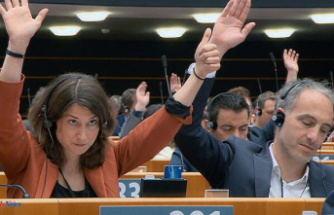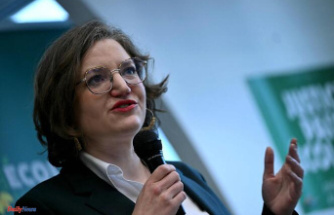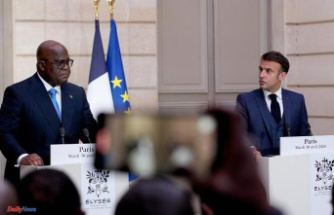Sullivan will be the highest ranking official from Biden's administration to visit Saudi Arabia. According to two administration officials, Sullivan will meet Khalid bin Salman (a brother of the crown prince), in addition to seeing the crown Prince. Two senior administration officials spoke under anonymity because they were not allowed to speak publicly.
Since making public, February 2, a CIA report showing that MBS had likely approved the murder Washington Post columnist and Saudi critic Jamal Khashoggi during a 2018 operation at Istanbul's consulate of the kingdom, the White House has largely avoided the crown prince.
The White House decided that it was impossible to end the world's most complicated conflict without talking to the highest ranking Saudi officials, according to a senior administration official.
Emily Horne, spokesperson for the National Security Council, stated that Sullivan was going to Riyadh Monday, and would also visit United Arab Emirates, a Saudi ally, but didn't provide any further details. Axios reported first that Sullivan planned to travel to the region.
Sullivan's dispatch comes at a time when Yemen, the Arab World's poorest nation, is worsening. As Iran-backed rebels seek to overthrow the Saudi-backed government in Marib (a key city in the north), fighting has intensified.
The international efforts to end the conflict have failed. Tim Lenderking (the U.S. special representative for Yemen) called out the Houthis for refusing to negotiate a ceasefire and political negotiations in July.
International criticism has been levelled at the Saudis for their airstrikes that killed civilians and embargoes that increased hunger in , a nation nearing famine.
Hans Grundberg, the U.N.'s new special envoy to Yemen has recently stated that Yemen is "stuckin an indefinite state war" and that it will be difficult to resume negotiations to end the six-year-old conflict.
The war in Yemen began in September 2014 when Iranian-backed Houthis took Sanaa. They then began a march to the south to take over the country. Saudi Arabia joined the United Arab Emirates, other countries, and entered the war in March 2015 alongside Yemen's internationally recognised government.
The U.S. sold Saudi Arabia bombs and fighter planes that it later used to strike at Yemeni civilians. In 2015, the Obama administration offered U.S. targeting support to Saudi Arabia's command and control operations. This was meant to reduce civilian casualties during airstrikes. Obama ended the program.
Although President Donald Trump's administration stopped U.S. refuelling operations for Saudi aircraft, the targeting assistance was continued.
Biden declared weeks into his presidency that he would end all American support for "offensive actions in the war in Yemen," including any relevant arms sales, but there has been very little progress in resolving the United Nations' worst humanitarian crisis.
Two senior administration officials said that White House officials believe Grundberg's appointment will create a new dynamic in the conflict and increase pressure on all sides to end it.
Lenderking and NSC senior Director for the Middle East Brett McGurk will be accompanying Sullivan to the talks with the Saudis, UAE and UAE. Defense Secretary Lloyd Austin had planned to travel to Saudi Arabia in early February, while he was still in the region. However, the administration delayed the trip due to scheduling issues.
After Lenderking's trip to Saudi Arabia and Oman to press for an end of the war, the White House has made a high-level push. Additionally, Secretary Of State Antony Blinken met with his counterparts from the Gulf Cooperation Council at the margins of the U.N. General Assembly.
Sullivan's visit is also scheduled as the Obama administration searches for ways to revive the Iran nuclear agreement. Both the UAE and Saudi Arabia strongly oppose the return to the Iran nuclear deal that was initially brokered by Trump's administration in 2015. However, Trump renegotiated it in 2018.
Hossain Abdollah, Iran's foreign minister, addressed the U.N. General Assembly Friday. He said that Iran will soon resume nuclear negotiations in Vienna. But he also accused the Biden administration for sending contradictory messages. It claimed it wanted to rejoin the pact but slapped new sanctions on Tehran while not taking any "an iota" of positive action.
Biden and his team made the U.S.'s return to the deal, to which Britain and France are signatories, one of their top foreign policy priorities. The U.S. has not made much progress in indirect negotiations and Tehran has resisted Biden administration officials' request for a "longer, stronger" deal to replace the original which expires at 2030.












